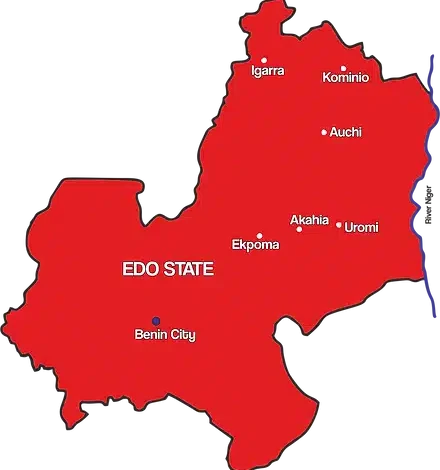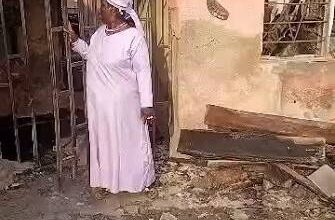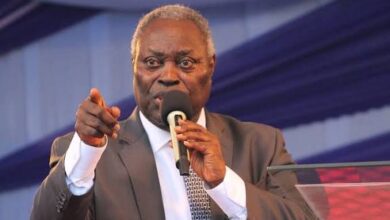Ijaw communities in Edo decry neglect

By Ologeh Joseph Chibu
The Ijaw communities in Edo State have voiced deep concerns over what they describe as years of marginalization and neglect by successive state governments.
The Ijaws insist they face deteriorating living conditions and exclusion from key political and infrastructural developments.
In a press statement released on Tuesday made available to Irohinodua, Chairman of the Gelegele Executive Council, Omaghomi Olu-Derimon, said the Ijaw people have become “destitute” in a state where other ethnic groups enjoy visible government presence.
He expressed dismay over the absence of basic social amenities in Ijaw communities, particularly Gelegele, and the near-total lack of access roads, which he said has left many residents disconnected from the rest of Edo State.
“Our economic life is severely threatened not just by the absence of social amenities but also by the poor state of infrastructure, especially roads,” Olu-Derimon stated. “We have made several appeals to previous governments, but there has been no meaningful response.”
He drew particular attention to the only secondary school in Gelegele, which he described as being in a pitiable state, calling for urgent intervention by the state government.
“The future of our children has become a subject of debate because of the absence of functional educational facilities and qualified teaching staff in Ijaw areas,” he lamented.
According to him, the Ijaw communities have been forced to rely almost entirely on self-help initiatives to survive.
“All we do as a people is self-help in these areas of lack, just to remain afloat,” he said. “It is no longer funny. It feels like we are not part of the state.”
Olu-Derimon also highlighted insecurity—particularly in the waterways—and political marginalization as major concerns. He urged Governor Monday Okpebholo to address the longstanding issues by including Ijaw representatives in his administration.
“It is time to change the narrative,” he stated. “The Ijaw people are an integral part of the diverse cultural landscape of Nigeria, especially in the Niger Delta region, including parts of Edo. We deserve to be represented in the government of Monday Okpebholo.”
He emphasized the Ijaw people’s significant contributions to the local economy through fishing, trading, and other traditional livelihoods.
“Our historical significance, cultural richness, and economic contributions make us a vital component of the socio-political fabric of Edo State,” Olu-Derimon noted. “Appointing Ijaw representatives to key positions would reflect a true commitment to inclusivity and cultural diversity.”
On the issue of infrastructure, he called on the government to recognize the strategic importance of Gelegele, which he described as the first oil-producing community in the state.
“Gelegele deserves tangible government presence through the provision of infrastructure. This is not just a matter of fairness but also of economic necessity.”
To address rising insecurity in the waterways, Olu-Derimon advocated the establishment and proper equipping of a community vigilante group.
“A dedicated waterways vigilante group would help monitor and protect our water bodies from pirates, illegal fishing, and other criminal activities,” he said. “This would go a long way in safeguarding the livelihoods of local fishermen and traders.”
The statement concluded with a renewed call for the Edo State Government to demonstrate political will by addressing the long-standing grievances of the Ijaw people, ensuring their full integration into the state’s development agenda.




